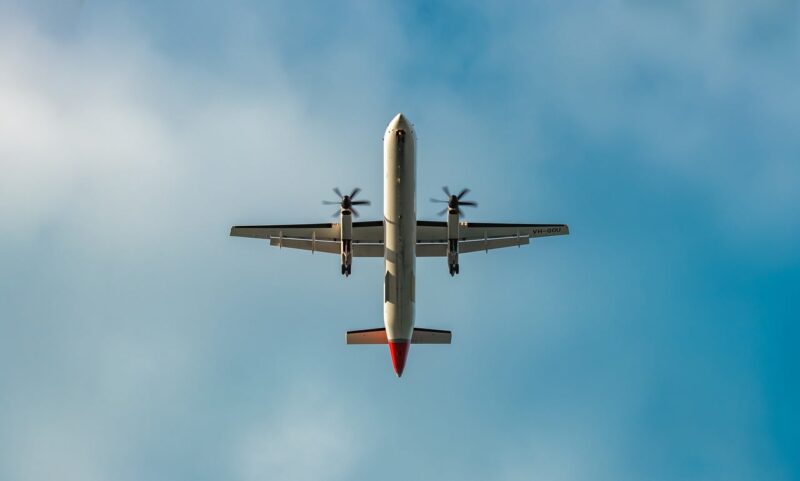The Secret Lives of Flight Attendants and the Challenges They Face in the Air
November 12, 2024

Flight attendants play a vital role in the aviation industry, ensuring passengers are safe, comfortable, and well taken care of during each flight. But behind the glamorous facade of serving drinks and assisting passengers lies a complex world filled with unique challenges and experiences. This article delves deep into the lives of flight attendants, exploring the reality of their jobs, the pressures they face, and the skills they must master to thrive in the skies.
1. The Dual Nature of the Job
Flight attendants are often perceived as individuals who travel the world, meet exciting people, and enjoy the luxury of flying for free. However, there’s much more to their job than what meets the eye. Flight attendants embody the duality of their responsibilities: they are safety professionals and customer service representatives rolled into one.
The moment they step onto an aircraft, they take on the critical duty of ensuring the safety of everyone onboard. This includes conducting pre-flight safety checks, demonstrating safety procedures, and managing emergency situations.
Their customer service role comes into play during the flight, where they attend to passengers’ needs, serve meals, and handle complaints. The ability to switch between these two roles seamlessly is what sets apart a good flight attendant from a great one.
2. The Lifesaving Skills in Action
One of the lesser-known aspects of being a flight attendant is the extensive training they undergo to prepare for emergencies. Before they can step foot on a plane, they must complete rigorous training programs that include:
- Emergency Evacuation Procedures: Flight attendants practice how to safely evacuate passengers in various emergency situations, from fires to water landings.
- First Aid Training: They learn to provide basic medical assistance, handle medical emergencies, and use equipment like an Automated External Defibrillator (AED).
- CPR Certification: Knowing how to perform CPR is essential. Flight attendants must be prepared to respond effectively to a passenger’s medical emergency.
The skills acquired during training can be lifesaving, and flight attendants take these responsibilities very seriously.
3. The Reality of Irregular Hours
Flight attendants often work irregular hours, including nights, weekends, and holidays. Their schedules can change at a moment’s notice, and many flight attendants are on call, ready to jump on a flight whenever needed. This can lead to challenges in maintaining a stable work-life balance.
While others enjoy holidays and family gatherings, flight attendants may be thousands of feet in the air, serving passengers. This demanding schedule can strain personal relationships, making it difficult for them to maintain connections with family and friends.
Additionally, the time spent away from home can lead to fatigue and stress, making it essential for flight attendants to manage their physical and mental well-being.
4. Coping with Jet Lag and Fatigue
The phenomenon of jet lag is a serious challenge that flight attendants face, particularly those who work long-haul international flights. Crossing numerous time zones can disrupt the body’s internal clock, resulting in sleep disturbances and fatigue.
To cope with these effects, many flight attendants adopt strategies such as:
- Regulating Sleep Patterns: Prioritizing sleep before and after flights to help their bodies adjust to different time zones.
- Staying Hydrated: Drinking plenty of water helps to combat dehydration that is common during flights.
- Maintaining a Healthy Diet: Eating nutritious meals enables them to sustain their energy levels while minimizing fatigue.
These strategies are crucial for performance, ensuring that they are alert and capable of managing their responsibilities effectively.
5. Handling Difficult Passengers
Flight attendants often encounter difficult or disruptive passengers during flights. Managing such situations requires a unique blend of communication skills, emotional intelligence, and conflict resolution techniques.
Some strategies they employ include:
- Active Listening: Understanding the concerns of passengers, which can help de-escalate tense situations.
- Staying Calm: Maintaining a composed demeanor can positively influence the atmosphere within the cabin and prevent situations from spiraling out of control.
- Involving Authorities: If a situation escalates beyond their control, flight attendants are trained to involve security personnel or law enforcement to ensure the safety of all passengers.
Handling difficult passengers requires resilience and a strong sense of diplomacy, highlighting the intricacies of their job.
6. The Importance of Teamwork
In the close quarters of an aircraft, teamwork is paramount. Flight attendants work as a cohesive unit, supporting each other during flights. Whether it’s providing assistance during a routine service or during an emergency, their ability to collaborate and communicate effectively is essential for overall safety and efficiency.
From pre-flight briefings to handling in-flight challenges, strong teamwork fosters camaraderie and creates a positive environment for both crew and passengers.
7. Life-Long Friendships and Networking
One of the unexpected perks of being a flight attendant is the ability to form life-long friendships with colleagues. Working together in high-pressure situations creates bonds that often extend beyond the workplace. The friendships formed can be invaluable, offering emotional support and a sense of community.
Additionally, the global nature of their work provides incredible networking opportunities. Flight attendants often meet individuals from diverse backgrounds and professions, opening doors to unique experiences and career advancement opportunities in various fields.
Conclusion
The secret lives of flight attendants are woven with excitement, challenges, and deep-seated commitments to safety and service. From handling emergencies to navigating difficult passengers, the skills they develop and the sacrifices they make are commendable.
Despite the challenges, many flight attendants find immense satisfaction in their roles, often citing the thrill of travel, the joy of serving others, and the friendships forged as some of the highlights of their careers. Understanding the complexities of their job offers a glimpse into the crucial role they play in the aviation industry, inspiring appreciation and respect for those who serve us high above the clouds.








